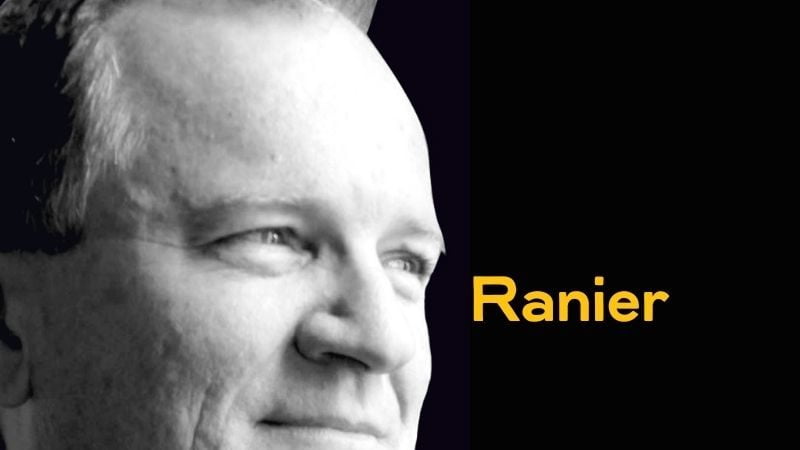Every time Robert Abela states that he has shown there is no one who’s “untouchable” in the country, someone reminds him of the growing list of seemingly untouchable people in Labour’s orbit, as ministers, MPs, persons of trust or business crony — Rosianne Cutajar looking like the most recent addition. Fair comment, but it pulls its punches.
He first declared there were no untouchables in March, while speaking to the press. But he was referring to “those who were untouchable before 2013”, and to organised crime.
Let’s pause on those words, for they were reported on Labour’s ONE news and they would have been calibrated with that audience in mind.
The obvious point: he is accusing Nationalist administrations of having had “untouchables”. He’s not saying there were untouchables under the Joseph Muscat government.
Like many of Abela’s statements, it ends up raising more questions than it settles. What appears to be a boast of strength and determination ends up looking like waffle. The words are carefully chosen to avoid stirring up a ferocious beast.
It’s 2021. Eight years have passed since 2013, when Labour was elected. If some people were untouchable before then, and action is only being taken now, then they were obviously also untouchable under Muscat. You can’t have it both ways.
You can’t take political credit for coming down on organised crime, without indicting the politicians who had long years to take the same action but did nothing.
The entire point of talking about untouchables is to persuade everyone — the FATF as much as a domestic audience — that no one is off limits, even if they are close to the ruling Party. Mention “untouchables” in casual conversation today, and people’s minds go to the rampant corruption of the present. But Abela points to a distant world.
The effect is the opposite of the one he hopes for. Instead of seeming fearless, he confirms he is tiptoeing around a taboo subject.
Early in his premiership, he had told a Labour audience that he would be ready to take the necessary steps against anyone found guilty of wrongdoing — something he keeps reiterating. But to be found guilty of wrongdoing, you first need to be investigated.
When it suits Abela, he says investigations are not and should not be in his hands, which is true. That enables him to say he can’t be blamed for investigations that don’t take place — he simply waits for the process to take its course. But on other occasions, he takes the credit for court arraignments. Once more, he can’t have it both ways.
On this point, the media let Abela off lightly. They question his credibility given the long list of abuses of power that he tolerates. But they don’t challenge him to be more specific about what he’s saying.
His technique is to make what at first looks like a stark statement made from a position of strength — but which actually leaves the crucial details out. They are only implied; it’s the listeners who fill in the blanks. Abela never commits himself if he can help it.
For example, officially, we still don’t know why Konrad Mizzi was expelled from the Labour parliamentary group, other than that he had become embarrassing. Has he been expelled from Labour itself?
We may think that Labour has admitted its mistake in voting for confidence in him in parliament — but no, it hasn’t. If you think so, it’s because you’ve filled in the blanks. We deserve to know if Abela thinks that vote of confidence was a mistake.
It’s not something that lies in the past. It’s very much part of our greylisted present.
Another example: Keith Schembri has been charged in court — for something that happened before 2013. Likewise, Brian Tonna and Karl Cini, of the former accounting firm Nexia BT. Does Abela think they were untouchable under Muscat? We know what we think but we shouldn’t fill in the blanks for him.
He talks about there being no untouchables — but never mentions names. The listeners fill them in. In Abela’s rhetoric, the untouchables remain anonymous. When people know who you are but don’t name you, that’s a reliable sign of being untouchable.
Abela boasts from a position of weakness. From now on, he should be made to fill in his own blanks.













Robert Abela is the tipped-over-garbage-can-in-pursuit to create delaying distance for Muscat. Nothing more.
Incredible but true. Polls show the muvument korrott is leading – and who else if those supporting the muvument korrott are the cause of our greylisting without even noticing the harm they’re causing to all Maltese. Come next election if the muvument regains power then for the FATF we’re a nation of corrupt people and who cannot be trusted – thus wait for the next blow which will be even harder. It will be the honest tax payer who’ll be paying for all the corruption – the corrupt will still be untouchable and all the illicit money they made will be there for them and their families to enjoy whilst Malta’s image will remain tainted. It’s really shameful that because of illiteracy, greed or BOTH by the few we all have to bear the brunt.
Excellent as usual, why did Joseph Muscat resign? Why did Kieth Schemvri resign we still do not know. Chris Cardona?
Joseph said he paid the ultimate price, never told us why, or what the price was.
Another excellent thought provoking article and indeed it does pose more questions than it answers. With Abela being a lawyer he, of course,will be very adept at not committing to anything which may come back to haunt him.
It is only to be hoped that if re-elected the FATF will indeed continue to see through all the play acting charades from the incumbent untouchables and take further decisive action until the untouchables are named and shamed!